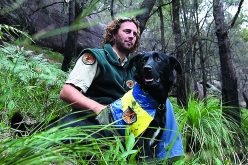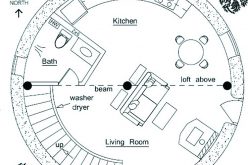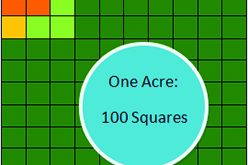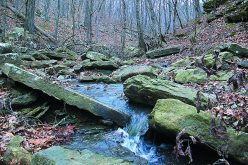Feeding wildlife isn’t the kind deed it appears to be
AMANDA BANCROFT
Making Ripples
Wouldn’t it be nice if every good intention resulted in good things happening? There should be some physical law stating such, up there with the law of gravity. Unfortunately, feeding deer is one of those well-intentioned deeds that result in dead deer. To protect deer and our environment, it’s best not to break the actual law declaring it illegal to bait or feed deer in Fayetteville.
Feeding wildlife is fun and educational, so it may not be easy to give up, but those who truly love animals won’t want them dead (of course!). The consequences of feeding wildlife varies: feeding bears, coyotes or predators can familiarize them to humans and create nuisance situations where the animals are put down after attacking children or trying to steal food. Feeding raccoons increases both the population and concentration of raccoons in a small area (like a porch) which increases raccoon deaths from canine distemper (often confused with rabies) a viral disease that infects foxes, coyotes, skunks and unvaccinated dogs. Deer feeding creates a similar problem, only in this case, the main goal is to stop the spread of Chronic Wasting Disease (CWD).
In a media release from David Carver, code compliance administrator, it was explained that “Chronic Wasting Disease is a fatal neurological disease that affects members of the deer family. The disease is transmitted through animal-to-animal contact of bodily fluids like saliva, blood, feces or urine, and indirectly through environmental contamination of soil, food or water. Experts believe Chronic Wasting Disease proteins can remain in the environment for a long time.” Just like humans in a crowded room with people coughing and spreading the flu, giving the deer a buffet creates unnatural crowds of deer. Sick deer can then transmit disease either directly or indirectly.
Regulation 07.06, which went into effect April 25, 2019, states: “It is unlawful to place or deposit foodstuffs, scents, lures, grains, minerals, pelletized feed, or other materials for the purpose of hunting, attracting or enticing wildlife for any reason inside the CWD Management Zone. Fayetteville lies within ‘Zone 1 Northwestern Arkansas’.”
If someone is caught, they receive a letter asking them to please stop. If they don’t stop, their case is forwarded to the city prosecutor’s office. You can also anonymously report deer feeding and help to save deer lives by calling (479) 575-8260 or submitting a report online at www.fayetteville-ar.gov/ohdeer. In addition to CWD, though, feeding deer food like corn can actually kill them because their digestive system may not be used to those starchy foods. Deer have been found starved to death with stomachs full of undigested corn. Feeding also increases the number of deer munching gardens and the incidence of car collisions with deer crossing roads. If you see an injured or dead deer, you can help by calling (479) 444-3456.
Amanda Bancroft is a writer, artist, and naturalist living in an off-grid tiny house on Kessler Mountain. She and her husband Ryan blog about their adventures and offer tips to those wanting to make a difference at www.RipplesBlog.org.









